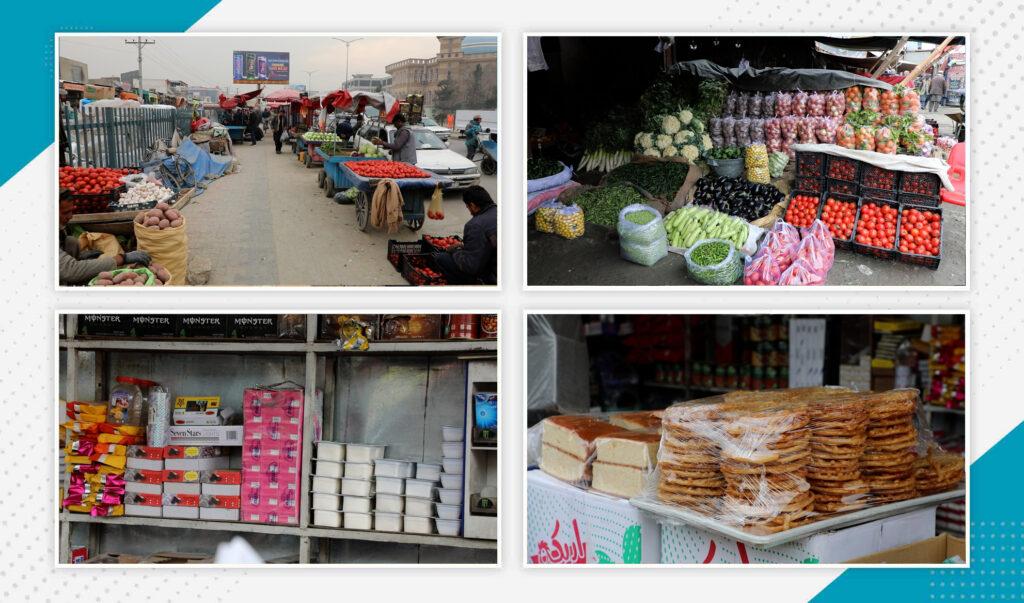KABUL (Pajhwok): On the eve of the holy month of Ramadan, some residents in the capital Kabul have urged the Islamic Emirate of Afghanistan (IEA) to control commodities prices particularly the rates of essential food items.
This is despite the fact that in the past, with the arrival of holidays such as Ramadan, New Year, Eid and on other occasions, some food vendors would increase prices, causing great hardship to the poor.
Some residents demand control on prices before Ramadan
Abdul Rahman, a resident of Kabul, said that every year with the arrival of the holy month of Ramadan, vendors increased the prices of goods.
He, who came to the city to buy some necessities, told Pajhwok News Agency that he was unable to buy anything due to the high prices.
He said: “This is not the first Ramadan that prices have jumped, over the years, prices have increased with the arrival of Ramadan. Businessmen are oppressive, the government must stop opportunists.”
Meanwhile, Aminullah, another resident of the city who transfer goods purchased by people from one place to another, also complained about shopkeepers charging extra during certain days, especially the holy month of Ramadan, saying that most people, like him, are poor and could not afford to buy.
He asked the Kabul Municipality to prevent shopkeepers and traders from selling at high prices, especially for food raw materials, during these times.
Also, Noor Agha, another resident of Kabul, has a similar complaint and said that every year with the arrival of the holy month of Ramadan, shopkeepers increased the prices of raw materials.
According to him, the prices of some vegetables have increased, and the Kabul Municipality should stop it.
Najibullah, a vegetable seller in Kabul, also said that the prices of some vegetables have increased due to the closure of the Torkham border.
According to him, today, compared to 20 days ago, the price of a potato has increased from 120 to 180 Afs, the price of a pumpkin from 100 to 300 Afs, and the price of 600 grams of tomatoes from 40 to 70 afs.
Professor Tala Ghafoori, head of the Kabul Vegetable Sellers’ Union, confirmed that the prices of some vegetables have increased, but it is not because of the holy month of Ramadan, but rather because of the closure of the Torkham border.
Najibullah, a vegetable seller in Kabul, also said that the prices of some vegetables have increased due to the closure of the Torkham border.
According to him, today, compared to 20 days ago, the price of seven kilograms potato has increased from 120 to 180 Afs, the price of seven kilograms of pumpkin from 100 to 300 Afs, and the price of seven kilograms of tomatoes from 40 to 70 Afis.
Meanwhile, Firuz, another vegetable seller, says that due to the closure of the Torkham border, the price of every vegetable, including okra, black eggplant, falisia, etc., has increased compared to 20 days ago.
Meanwhile, Abdul Basit Rahimi, a shopkeeper in Kabul, said that the prices of food items such as dates, jam, cheese, eggs and cream, which are mostly used during the holy month of Ramadan, have increased.
He said that most people are facing economic problems and cannot afford to buy, and the government should intervene in such situations and prevent traders and shopkeepers from selling at high prices.
The religious scholar also called for preventing over-purchasing
Hasibullah Hanafi, a religious scholar, said: “The month of Ramadan is the month of mercy, the month of blessings, and the month of forgiveness, and we must please Allah (swt) in this month.”
He continued: “During religious days and official ceremonies, other countries reduce the prices of materials, especially food, but on the contrary, in our country, in this month, which is the month of forgiveness and most people cannot afford to buy, they raise prices.”
He said that the government should stop such people who hoard and increase prices.
nh







GET IN TOUCH
NEWSLETTER
SUGGEST A STORY
PAJHWOK MOBILE APP